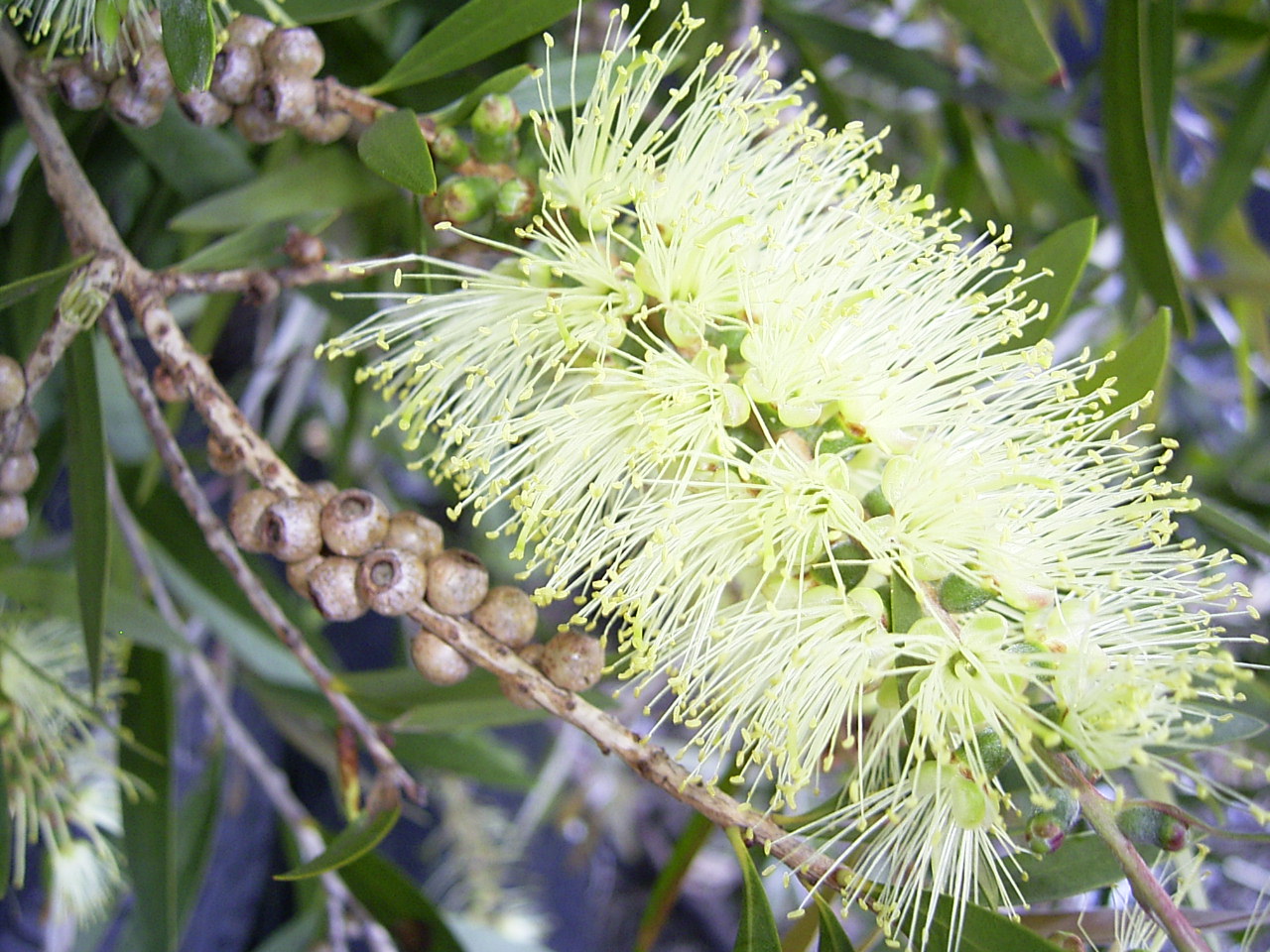Scientific Name: Melaleuca pallida
Common Name: yellow bottlebrush
Family Classification (Clade): Eudicots
Family: Myrtaceae
Form Description: Stiffly erect dense shrub.
Height (m): 1 – 5
Flowers: Spikes 4-8cm long of pale yellow flowers.
Fruit: Woody capsule 3.9-6.6 mm long; retained on plant for years.
Municipality
Plant Communities
Habitat Notes
Widespread along streams, on hillsides in wet areas.
Site Tolerance
Moist, Rocky, Waterlogged, Windy
Soil Tolerance
Clay, Fertile, Loam, Nutrient-poor, Poorly-drained, Well-drained
Frost Tolerance
Hardy
General Notes
Useful in shelter belts. Flowers provide food for nectar-eating mammals. Bee attracting as well as attracting other insects. Bird attracting (insect-eating birds). Good for direct seeding if sufficient moisture available. Susceptible to browsing by possums and wallabies.
Propagation Calendar
-
Flowering Month
Jan Feb Mar Apr May Jun Jul Aug Sep Oct Nov Dec -
Seed Collecting Month
Jan Feb Mar Apr May Jun Jul Aug Sep Oct Nov Dec -
Sowing Month
Jan Feb Mar Apr May Jun Jul Aug Sep Oct Nov Dec -
Cutting Month
Jan Feb Mar Apr May Jun Jul Aug Sep Oct Nov Dec
Propagation Method
Seed Information
Seed Collection
Capsules release seeds easily once collected. Collect capsules from older wood. Seed very fine.
Seed Treatment Method
Standard Scatter seed thinly on to damp potting mix. Hold seed in place by covering with more potting mix to approximately the depth of the seed size.
Seed Storage Life
Long
Seed Treatment Notes
Very high viability without treatment. Bog method useful but not essential. Very fine seed – do not cover too deeply and do not sow too thickly. Long seed life. Best time to sow seed – early Spring.
Germination Time
2-3 weeks
Cutting & Division Information
Cuttings strike readily on heat and mist. Propagation from cuttings is useful to reproduce a special form.
